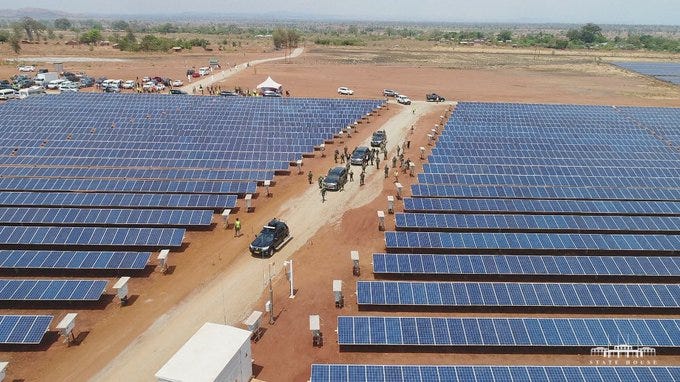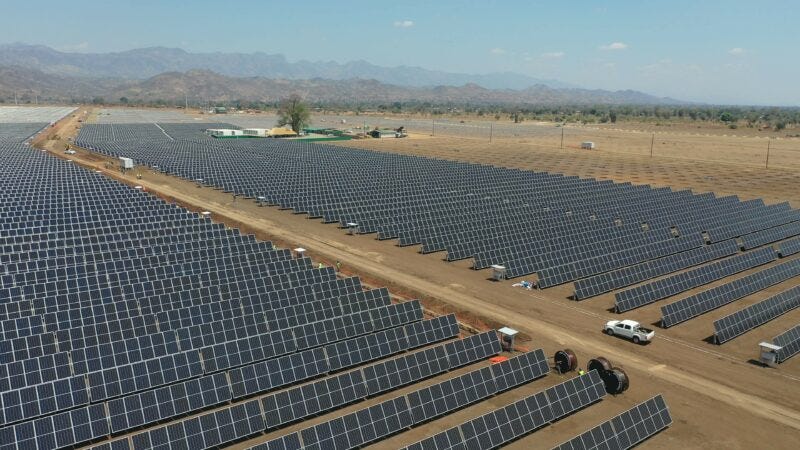LILONGWE, Malawi— Malawi, one of the countries in Southern Africa with the lowest average population access to electricity, is taking significant steps towards harnessing solar energy, writes Winston Mwale.
With only 11% of the population, amounting to 18 million people, currently having access to electricity, there exists a considerable disparity between urban and rural regions, where approximately 83% of Malawi's population resides.
Furthermore, Malawi's struggling economy, with a gross domestic product (GDP) of $5.4 billion in 2016, positions the country among the world's poorest nations.
This combination of limited electricity access and a low GDP underscores the urgent need to address energy poverty and promote economic development.
Hydropower systems dominate electricity generation in Malawi, contributing 372 MW to the national capacity of 532 MW.
However, the country faces challenges in providing affordable and reliable electricity, especially in terms of financial capacity.
To tackle these issues, Malawi has been actively exploring solar energy as a viable solution.
One of these “viable solutions” is the Golomoti Solar Project, a pioneering large-scale solar project with a capacity of 20 megawatts (MW), that integrates a battery energy storage system, making it the first of its kind in Southern Africa.
This innovative addition ensures the delivery of reliable, renewable electricity and strengthens the resilience of the national power grid.
The project entered commercial operation in May 2022 after being inaugurated by President Lazarus Chakwera, marking a significant milestone as Malawi's first utility-scale solar-plus-storage power project.
During the inauguration, President Chakwera emphasised the importance of renewable energy for both the environment and the nation's economy.
He highlighted the positive impact of embracing renewable energy, not only for the sake of the environment but also for the economy and the people of Malawi.
"Harnessing renewable energy is crucial for our environment, economy, and people," emphasised President Chakwera during the inauguration of the Golomoti Solar Project in 2022.
"We must embrace renewable energy, not only for the sake of our environment but also for the sake of our economy and our people."
Additionally, the Golomoti Solar Project has contributed to economic development and job creation, with JCM Power, the co-developer, employing 500 locals during the construction phase and retaining 20 individuals as long-term staff.
Another notable solar project in Malawi is the JCM Solar Power Plant in Salima, which serves as the country's first independent power producer.
With a capacity of 60 MW, the solar park uses photovoltaic (PV) panels to generate electricity.
President Chakwera inaugurated the plant in 2021, highlighting its significance as a milestone in Malawi's commitment to renewable energy.
He extended an invitation to investors in the energy sector to explore the vast opportunities in Malawi.
Malawi's transition to solar energy aims to address the challenges of energy poverty, climate change, health, water, and economic transformation.
Despite facing hurdles such as limited knowledge, technical expertise, funding availability, and geographical landscape, the country is witnessing a growing embrace of solar energy as a sustainable and cleaner power source for homes and businesses.
As the Malawi Sustainable Investment Study suggests, a clear plan and building on previous sectoral work can accelerate Malawi's progress in adopting solar energy.
This transition signifies a crucial step towards addressing energy poverty and climate change, with significant achievements already observed through projects like the Golomoti Solar Project and the JCM Solar Power Plant






While any increase in power generation is welcome it must be noted that in the rainy season solar is not reliable so more suitable power sources must be made such as coal or nuclear.